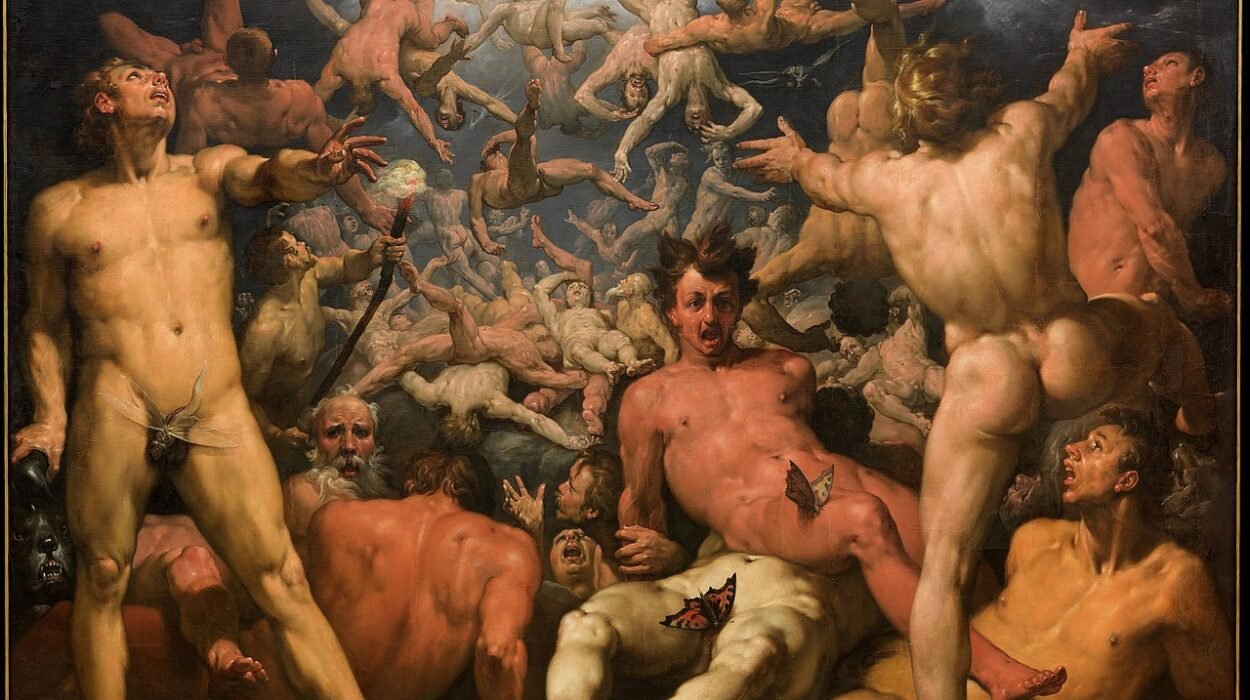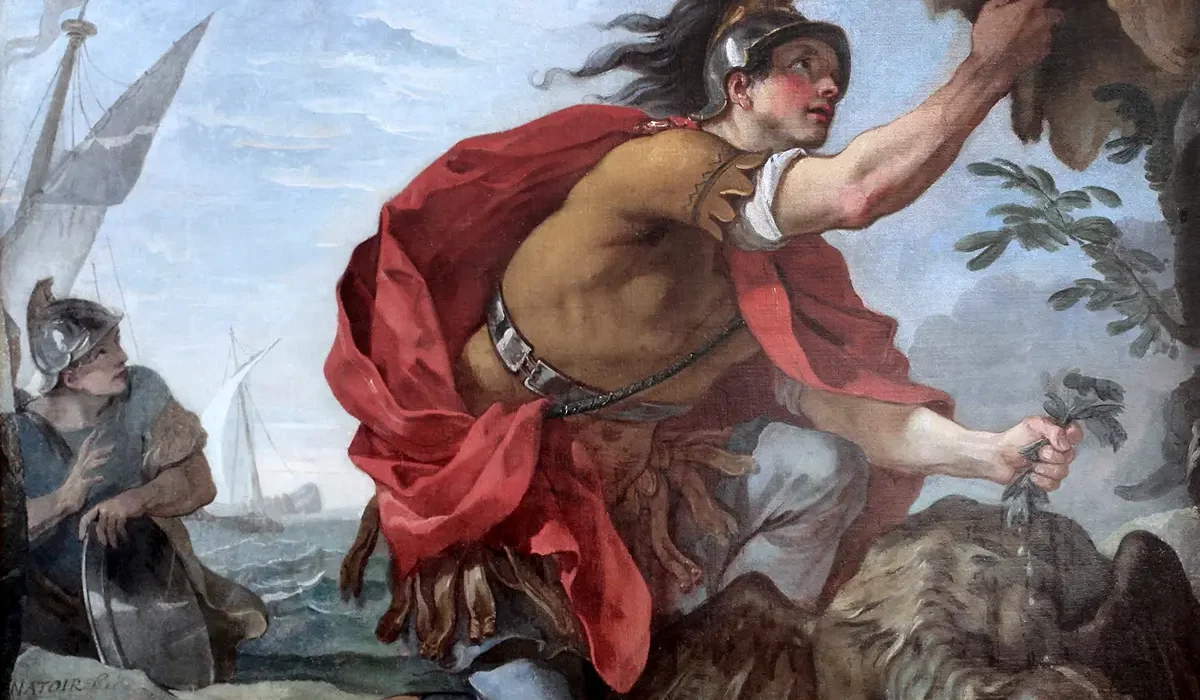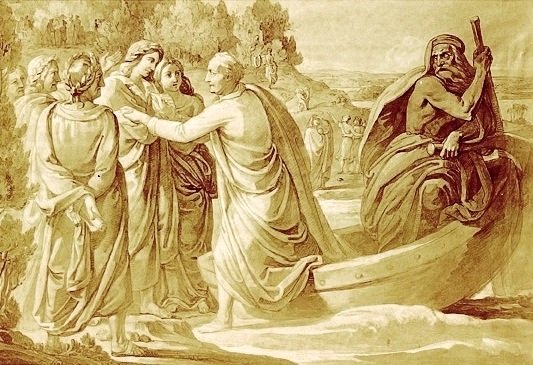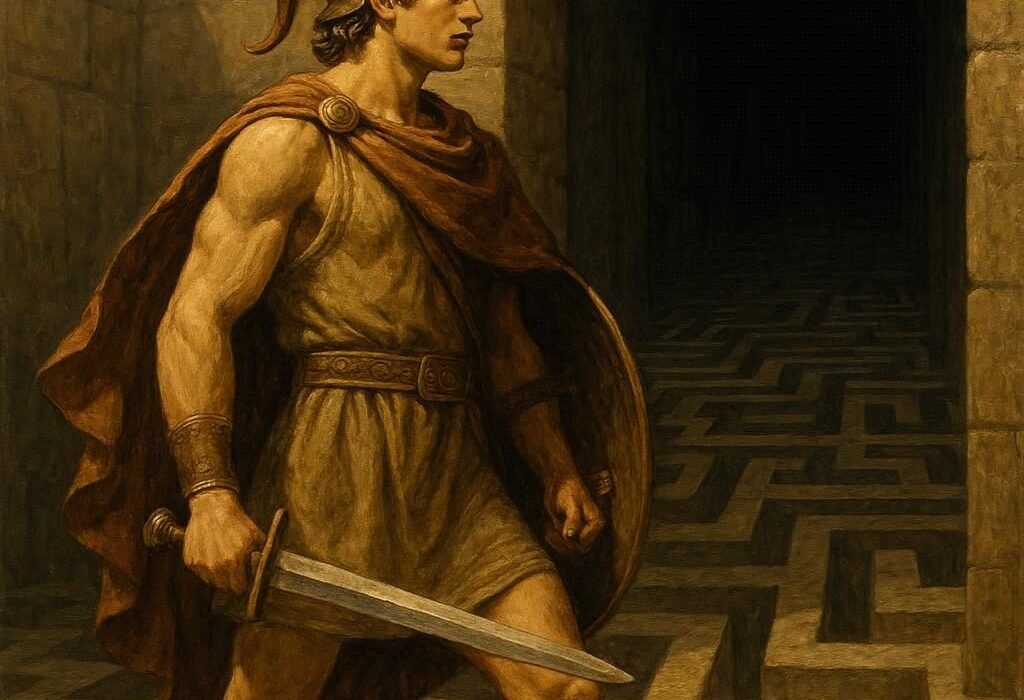When we speak of the gods of Olympus—Zeus, Hera, Demeter, Poseidon, Hades, and Hestia—we often imagine their thunderous powers, their dramatic myths, and their eternal struggles that shaped the ancient Greek imagination. Yet behind their stories stands a quieter, older figure whose presence is woven into the very origins of divine order: Rhea, the great Titaness, daughter of the primordial sky and earth, and the mother who gave birth to the Olympians themselves.
Rhea’s name is not shouted in the same way as Zeus’s thunder or Aphrodite’s beauty. She is not remembered for dramatic wars or fiery punishments. Instead, she lingers like an echo—a mother who carried the weight of destiny in her womb, who endured loss, grief, and cunning sacrifice so that a new age of gods could rise. To understand Rhea is to trace the bridge between the raw, elemental power of the Titans and the more structured, anthropomorphic order of the Olympians. She is the shadow behind Olympus, the heartbeat of a mythology that honors both suffering and renewal.
Origins in the Age of Titans
Rhea was born in the earliest age of the cosmos, a child of Gaia (Earth) and Uranus (Sky). This was the time before Olympians, when the universe itself was still settling into form. From the union of earth and sky came the Titans, the mighty deities who embodied the primal forces of nature and existence. Among these siblings were Oceanus, Hyperion, Themis, Mnemosyne, and Cronus—the one who would become Rhea’s consort and the father of her children.
Rhea herself was not a goddess of war or storm but was associated with fertility, motherhood, and the sustaining force of nature. She was often connected to the earth’s abundance, the cycles of time, and the sacred role of mothers as both creators and protectors. Ancient texts describe her with dignity and majesty, crowned in turrets as a symbol of her guardianship over cities, accompanied by lions that drew her chariot, echoing her close connection to the earth’s vitality.
Though quieter in myth than many of her siblings, Rhea’s destiny was profound: she would become the vessel through which a new divine order would enter the world.
Rhea and Cronus: A Marriage Bound to Fate
Rhea was wedded to her brother Cronus, who rose to power after overthrowing their father, Uranus. This act marked the transition from the chaotic rule of the primordial deities to the reign of the Titans. Cronus, however, was haunted by a prophecy—just as he had dethroned his father, so too would one of his own children dethrone him.
When Rhea began to bear children, Cronus’s fear turned into tyranny. Each time she gave birth, Cronus swallowed the newborn whole, imprisoning them in the darkness of his belly. Hestia, Demeter, Hera, Hades, and Poseidon—all were consumed before they could see the light of day.
For Rhea, this was not just a mythic tragedy but an eternal embodiment of a mother’s anguish. She carried life within her only to have it stolen moments after birth. She became the silent sufferer, the grieving mother who endured loss after loss. In her story, we see reflected the ancient understanding of cycles of destruction and renewal, of the deep sorrow that often accompanies creation.
The Birth of Zeus: A Mother’s Defiance
At last, when Rhea became pregnant with her sixth child, something within her refused to yield again to Cronus’s hunger. She sought counsel from her parents, Gaia and Uranus, who advised her on how to protect the infant. When the time of birth came, Rhea secretly delivered her son on the island of Crete, a land sacred in her myths.
There, she entrusted the newborn Zeus to the care of nymphs and divine guardians. According to legend, the Curetes, armored dancers, clashed their shields and spears together to drown out the cries of the infant so that Cronus would not hear him. Some stories say that the goat Amalthea suckled Zeus, nourishing him with her milk, while bees brought him honey to grow strong.
Meanwhile, Rhea devised a cunning deception. She wrapped a stone in swaddling clothes and presented it to Cronus as if it were the newborn. Without hesitation, Cronus swallowed the bundle, believing he had secured his throne once more. In this act, Rhea accomplished something extraordinary: through wit, courage, and maternal determination, she preserved the child who would one day fulfill prophecy and free his siblings.
Rhea’s Role in the Titanomachy
Though Zeus would grow in secret, return, and eventually lead the Olympians in the great war against the Titans—the Titanomachy—Rhea’s role is not forgotten. When Zeus came of age, he tricked Cronus into vomiting up his swallowed children, releasing them from the prison of his stomach. The Olympian siblings, finally reunited, rose together against their father and the older Titans.
In this cosmic struggle, Rhea stood not as a warrior but as a figure of transition. She belonged to the Titan generation yet gave life to the Olympians who would end that age. She embodied the passage of power, not through conquest, but through motherhood and sacrifice. It was her act of rebellion, her clever substitution of the stone for Zeus, that set the stage for the fall of Cronus and the dawn of a new era of gods.
Thus, while she does not appear on the battlefield, her influence is in every clash, every thunderbolt, every cry of freedom from the children she saved. Without Rhea’s courage, there would be no Olympian order, no Zeus, no mythology as we know it.
Symbolism and Sacred Roles
Rhea’s myths are fewer than those of her children, yet her symbolism resonates deeply. She represents:
- Motherhood and Fertility: Rhea is the archetypal mother figure in Greek mythology, her role echoing in later depictions of Demeter, Hera, and even the nurturing aspects of Gaia. She embodies the life-giving power of women and the pain and resilience that often accompany motherhood.
- Cycles of Nature: As a Titaness tied to fertility and abundance, she reflects the natural cycles of birth, death, and renewal. Just as seeds must sometimes be buried in darkness before they bloom, Rhea’s story is one of hidden hope emerging after despair.
- Transition Between Eras: Rhea stands between the age of Titans and the age of Olympians. She is a figure of liminality, bridging two worlds and ensuring continuity amidst upheaval.
In art, Rhea is often depicted similarly to the Anatolian mother goddess Cybele, with whom she became closely identified. She wears a mural crown (a crown shaped like city walls), rides in a chariot drawn by lions, and carries symbols of fertility. Her presence is majestic, protective, and eternal.
Rhea and Cybele: The Great Mother Connection
In later Greek and Roman thought, Rhea was often equated with Cybele, a powerful mother goddess from Phrygia in Anatolia. This syncretism expanded Rhea’s cult, infusing it with ecstatic rituals, music, and processions.
Cybele’s worship involved drumming, cymbals, and frenzied dances, as well as associations with wild animals, especially lions. As Rhea merged with Cybele, she too became a goddess not only of motherhood but of the untamed forces of nature, of mountains and wilderness, of life’s unstoppable fertility.
This connection highlights how Rhea’s role was not merely mythological but also deeply spiritual. She was revered as a protectress of cities and a sustainer of life. Her rituals spoke to the human need to honor the forces of creation, resilience, and continuity that underpin civilization itself.
Rhea in Literature and Mythic Memory
While Rhea does not dominate Greek literature in the way Zeus or Athena does, she appears in crucial moments that shape mythic narratives. Hesiod’s Theogony gives her a central role in the birth of Zeus and the survival of the Olympians. In Homeric hymns and later writers like Apollodorus, she is remembered as the mother whose actions preserved the future of the gods.
Her presence, though not constant, is always pivotal. She is invoked when memory turns to origins, when myth recalls not just glory but the quiet sacrifices that made glory possible. She is the unsung architect of destiny, the one who endured so that others could rise.
The Emotional Core of Rhea’s Story
To read Rhea’s myth is to feel the quiet strength of maternal love. Her story is one of repeated loss, yet also of enduring hope. She represents the countless mothers in history and myth who suffer silently yet act courageously for the sake of their children.
Rhea does not wield weapons, command armies, or throw lightning bolts. Her power is subtler but no less profound: the power of nurture, of sacrifice, of resilience. She is the one who teaches us that even in the face of overwhelming power, resistance can take the form of cunning, patience, and the quiet act of preservation.
Her myth also speaks to the eternal cycles of life—destruction giving way to renewal, endings becoming beginnings. Just as the Olympians emerged from the swallowed darkness of Cronus, so too does hope emerge from despair, light from shadow, and future from loss.
The Legacy of the Mother of Gods
Today, Rhea is not as well-known as Zeus or Athena, yet her legacy endures. She is remembered in art, in the blending of mythologies with Cybele, and in the echoes of her story wherever motherhood, sacrifice, and resilience are honored.
She stands as a reminder that behind every legend of power lies a story of endurance, that behind every new age lies the sacrifice of those who came before. Without Rhea, there is no Olympus, no Zeus, no myths of gods and heroes to inspire civilizations.
Rhea is not just the mother of gods—she is the mother of myth itself.
Conclusion: The Eternal Mother
To ask who Rhea is, is to uncover one of the deepest truths of Greek mythology: that creation is not only about force and conquest but also about nurture, patience, and sacrifice. She may not command thunder or wisdom, but she embodies the heartbeat of life itself.
Rhea is the great Titaness who bore the future in her womb, who defied the devouring darkness of Cronus, who ensured that the Olympians could rise and rule. She is the forgotten strength behind glory, the mother whose story reminds us that even the quietest figures can shape the destiny of worlds.
In every telling of Zeus’s triumph, in every myth of the Olympians, there is an echo of Rhea’s courage. She is the eternal mother, the silent guardian, the living bridge between ages. To remember her is to honor not only the gods she birthed but the universal truth she represents: that life itself is carried forward by love, sacrifice, and resilience.






